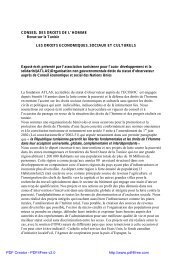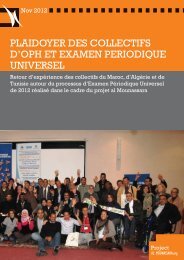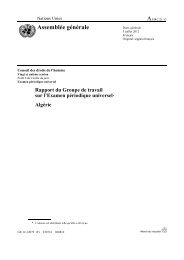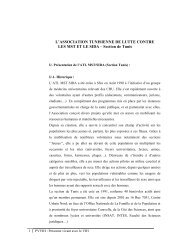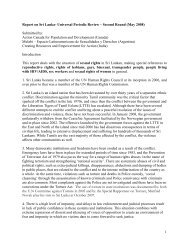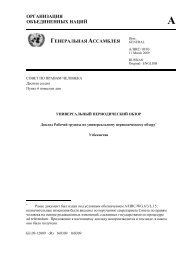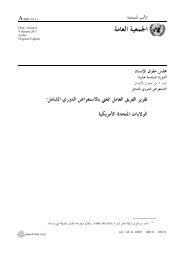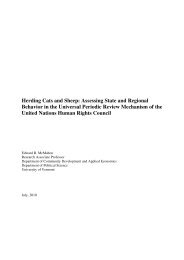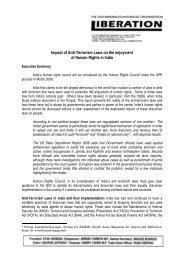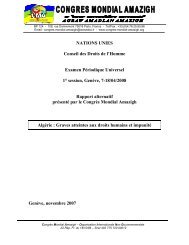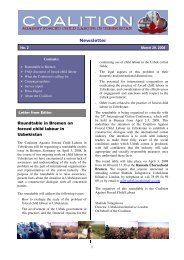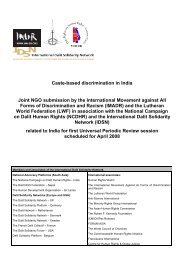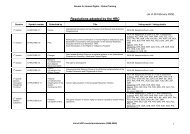1 - Universal Periodic Review
1 - Universal Periodic Review
1 - Universal Periodic Review
You also want an ePaper? Increase the reach of your titles
YUMPU automatically turns print PDFs into web optimized ePapers that Google loves.
• The pending case of the DBPWATI on the desk of the Supreme Court should beexpedited; if needed, the Supreme Court should pass another resolutionrequiring the defendants to pass their comments on the motion of mediationappealed by the petitioners in a certain period of time.• Proper orientation of the workers on the use of chemicals and its effect to theirhealth, community and environment.5. Conclusions and RecommendationsBased on the findings presented above, the Mission’s main conclusion is two-fold. First,big landowners and their employees are running amok of Philippine law andinternational law, and with complete impunity are engaged in a wide range of criminalactivities that seriously undermine rural poor people’s effective access to their humanrights. Second, in this light, the Philippine state is failing abjectly to fulfill its obligationsto respect, protect and fulfill the human rights of the rural poor population, as signatoryto the various relevant international human rights law conventions.5.1. Main PerpetratorsThe main perpetrators of agrarian reform related human rights violations against rightfulpeasant petitioners include both State Actors and Non-State Actors. The State Actorsinclude Local Police, NBI Agents, Barangay Captains and Tanods, Regular CourtOfficials (especially Judges and Public Prosecutors), and DAR officials at different levelsof the bureaucracy.The Non-State Actors involved in committing violence against rightful peasantpetitioners and CLOA holders include big landowners and their security guards,multinational agribusiness companies, armed goons, overseers and “guns-for-hire”, aswell as, allegedly, members of underground revolutionary armed groups operating inspecific local areas. There is clearly an entrenched culture of impunity gripping thePhilippine countryside. Landowners and their goons regularly flout the law, secure in theknowledge that they will escape prosecution for their criminal acts. Big landlords are notcomplying with the CARL in particular.5.2. State Obligation to Respect Peasants’ RightsIn many cases, government forces, such as local units of the Philippine National Policeand of the Armed Forces of the Philippines, were found to be siding with big landlordsand thus actively involved in violating the rights of agrarian reform petitioners andagrarian reform beneficiaries, and thus failing to respect their rights. Rather thankeeping the peace and protecting its most vulnerable citizens from human rightsviolations, such government forces were found to be involved in cases of killings,harassment and forced evictions.IFFM 2006 Final Report 34



